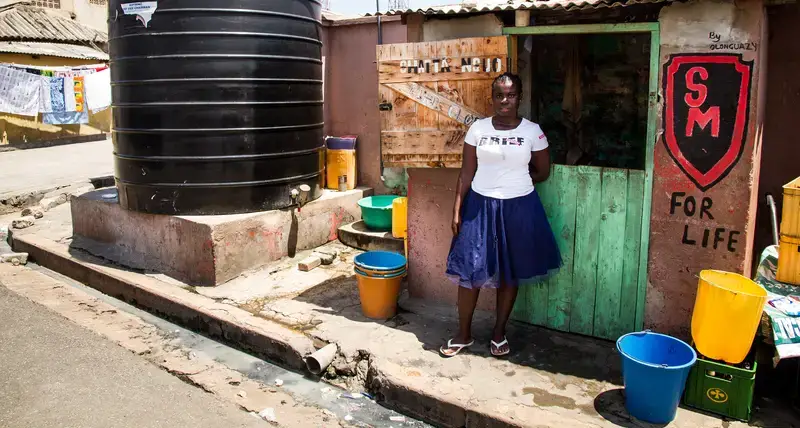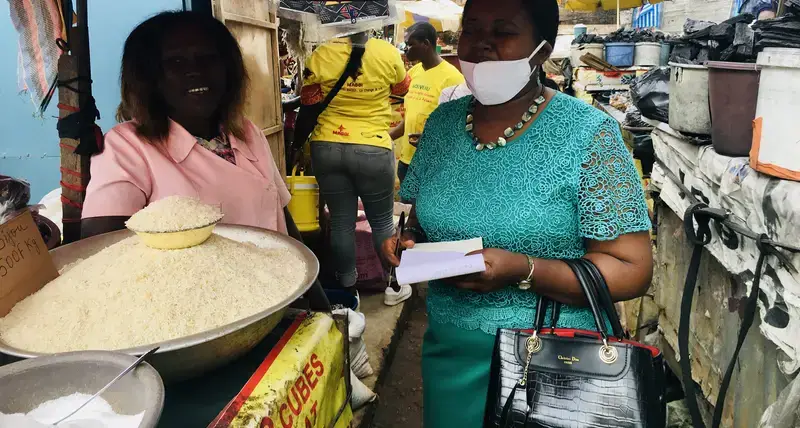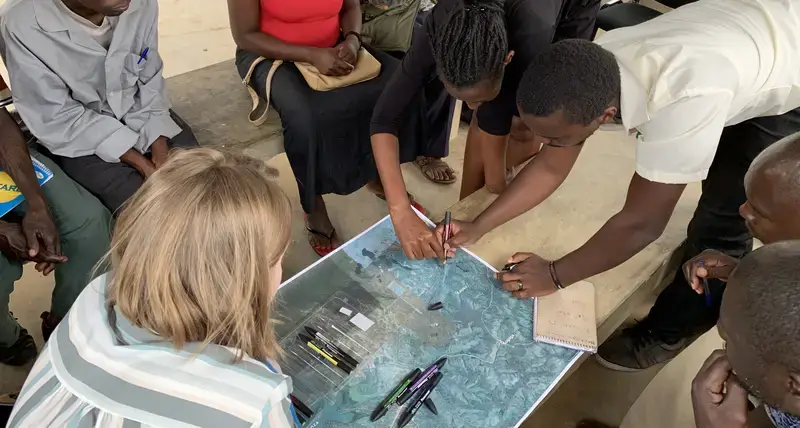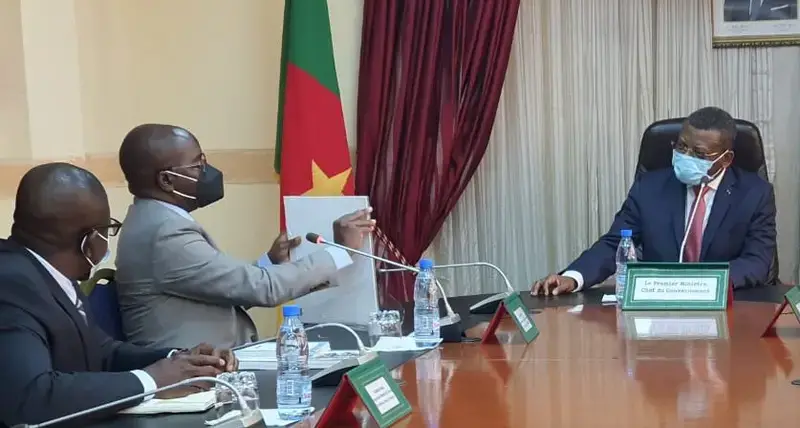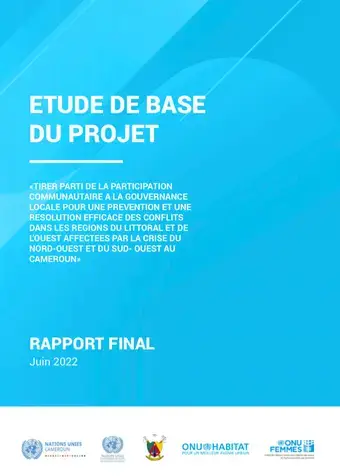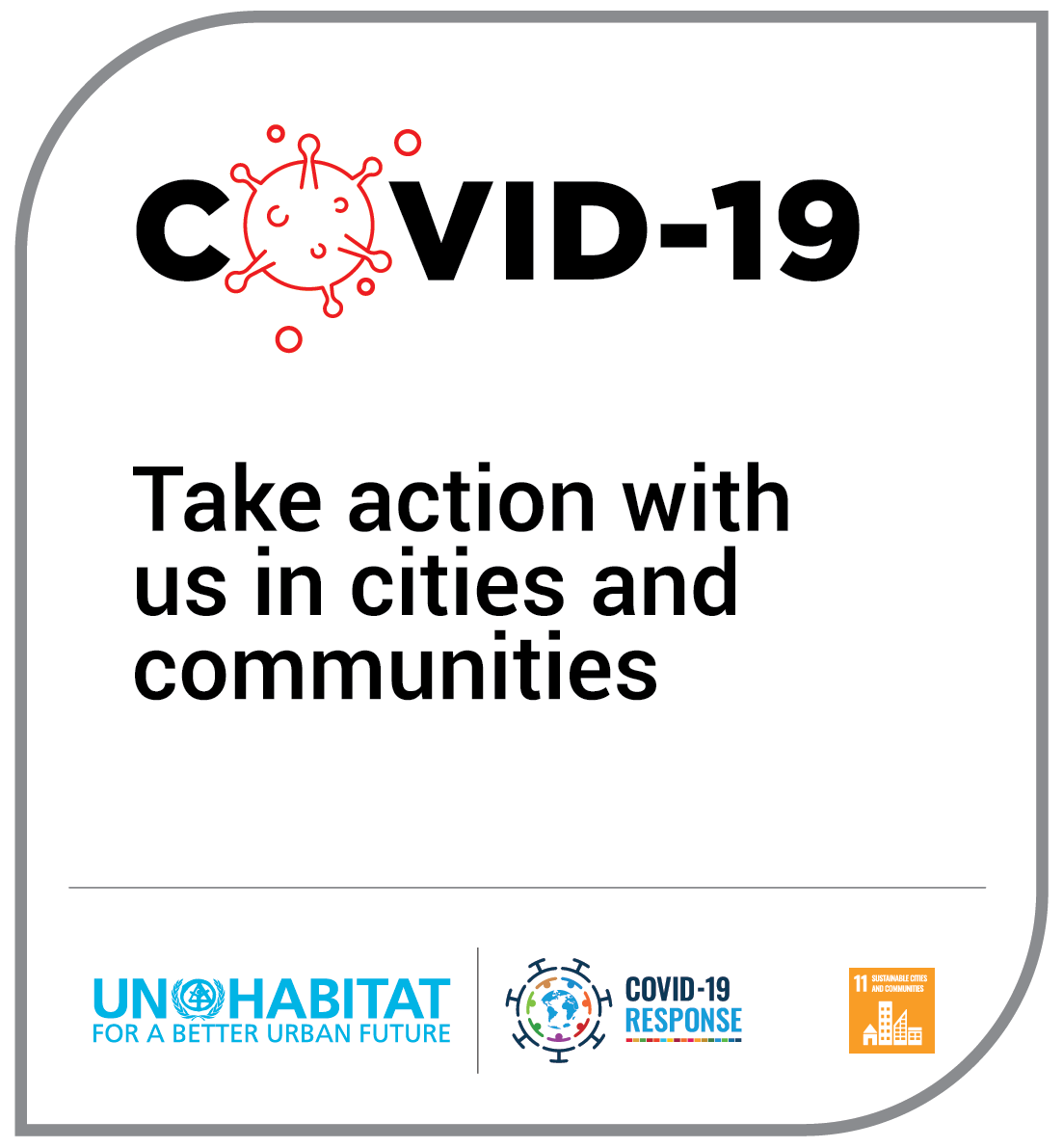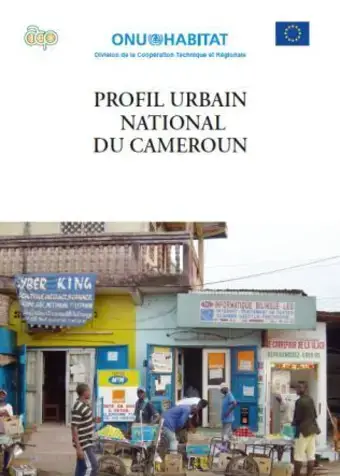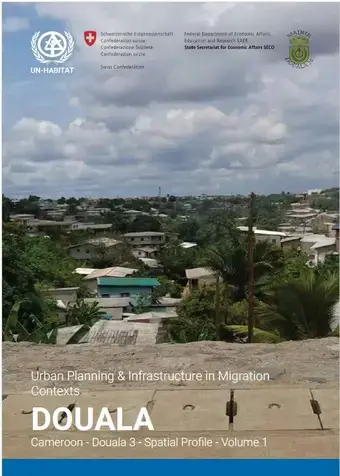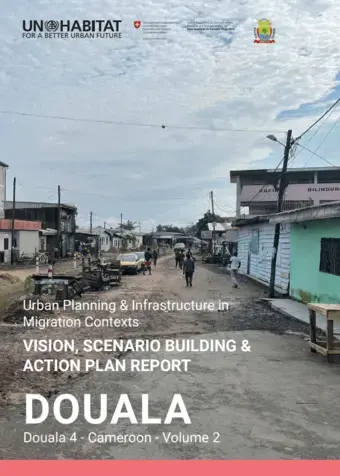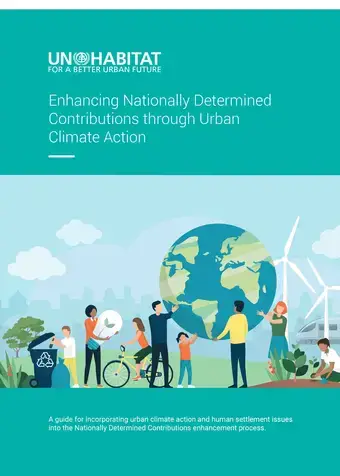Overview
UN-Habitat programme in Cameroon focuses on the implementation of a strategic plan involving urban legislation, Urban Governance, National Urban Policy, Urban Rural Linkages, Participatory Slum Upgrading Programme (PSUP), Public space and community resilience to climate change in Bamenda. More importantly, the willingness to sign the Host Country Agreement jointly drafted in 2017-2018 with the Ministry of Foreign Affairs.
The success of our work in Cameroon is dependent on the strong partnership and support from the Government of the Republic of Cameroon through the Ministry of Housing and Urban Development. Under this collaboration, UN-Habitat has successfully developed and implemented projects with local authorities and other government entities in areas such as urban rural linkages, climate resilience, slum upgrading and clean energy.
Country: Overview
Country: Overview
Country: Overview
Slums are an ongoing and dominant feature of Cameroon's urban centres. More than half of Cameroonians now live in towns and cities (53 per cent or around 13 million of Cameroon’s estimated 23 million), and an estimated 60 per cent of those are living in informal settlements and slums. With an urban growth rate of around 5 per cent, the challenge of managing and preventing slums as well planning and enforcing planning documents are critical.
Country: Impact and Urban Numbers
A National Urban Policy, that is proposed to lead Cameroons long-term sustainable urban development, is being prepared by UN-Habitat
Participatory Slum Upgrading Program (PSUP) with EU funds evaluated at 1,395,000 USD in three phases (2015)
Improving urban mobility and the use of renewable energy for a value of 200,000 USD with 100,000 USD coming from Cameroon
More than 80 per cent of Yaoundé's citizens are poor and 60 per cent live in slums settlements on hill slopes or marshes, where access to land, is cheaper.
Our work
Featured Stories & Videos
Country Beneficiaries
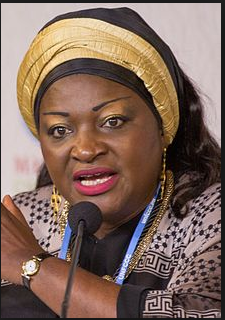
“Through PSUP, UN-Habitat has strengthened the country’s capacity on slums upgrading. This has enabled the Government to launch projects in about 5 cities on 1,700 hectares for a total population of 250,000. Moreover, UN-Habitat has helped Cameroon develop the National Urban Planning Document to improve urban planning and the implementation of stakeholders’ skills in the country.”
Celestine Ketcha Courtes, Minister of Housing and Urban Development
Donors
Partners
Highlighted Publications
Legacy content
- Total value of UN-Habitat investments (2008-2015): n/a
- Total number of UN-Habitat projects (2008-2015): 2 projects
- Main donors:European Commission and the Africa, Caribbean and Pacific Secretariat
- Implementing partners: UN-Habitat , City of Younde and Ministry of Habitat and Urban Development.
The Pacific has a rapid rate of urbanisation and high population growth and is not well enough prepared to cope with the challenges and opportunities that urban growth presents.
General information
UN Habitat is well placed to assist Cameroon to improve its urban management and planning practices and enable new thinking and actions about how best to evolve cities, towns and peri-urban areas for the future. The agency provides training, expert advice, proven tools and methodologies for small-medium sized urban centres within alignment of national needs and demands as articulated in National Development Strategies.
UN-Habitat projects in Cameroon
Mainstreaming energy and resource efficiency measures into building codes, building policies and building practices in Senegal, Nigeria and Cameroon
Objective of the project
- Strengthening the capacity of the respective governmental agencies in developing energy and resource efficiency codes for buildings,
- Making appropriate reference to and integration of energy and resource efficiency principles in country specific building codes,
- Developing policy guidelines for mainstreaming energy and resource efficiency in buildings in the project countries,
- Strengthening capacities of the private and public sector in dealing/working with building codes (permitting and enforcement),
- Strengthening the capacities of the finance sector in developing a green product portfolio,
- Facilitating knowledge sharing and regional exchange by means of two regional workshops, including the facilitation of two investment fair and exhibitions for energy and resource efficiency in buildings during the workshops, where the private sector can showcase resources efficient appliances.
Service sectors covered by the project include: energy access, buildings, academia, policy and legislation, housing finance.
The methodology will help to address the capacity of the respective governmental agencies in developing and implementing energy and resource efficiency codes for buildings (EEC) strengthened. Influence policies on building codes and building regulations in Senegal, Nigeria and Cameroon make adequate reference to energy and resource efficiency in buildings.
- Duration:April 2013 to December 2016
- Value:USD 585,000
(BMZ/GIZ USD 325,000; UNDP USD 100,000; Government of Nigeria USD 60,000; Government of Senegal USD 50,000; Government of Cameroon USD 50,000;)
-
Donor:BMZ/GIZ, UNDP, Government of Nigeria, Government of Senegal and Government of Cameroon
- Implementing Partners: UN-Habitat, Government of Nigeria, Government of Senegal and Government of Cameroon.
Acting for underprivileged youth in Yaoundé
The project helped improve the lives of disadvantaged young people of the district of Yaounde 2 through training in small business and support in the development of income generating activities.
20 young people including those living with disabilities received technical and vocational training in hairdressing, sewing, decorating, domestic work and computer. The 25 youth were supported and assisted in launching and managing a collective income generating activity.
Participatory Slum Upgrading Programme
This Programme aims at improving the lives of slum dwellers by addressing the five deprivations that characterize a slum namely, inadequate water; sanitation; durability of housing, overcrowding and tenure insecurity. Interventions are underpinned by three cross-cutting and complementary approaches: gender approach, human rights based approach, and results-based management approach.
- Duration: 2008 – December 2015
- Value: US$900,000
- Donor: European Commission and, the Africa, Caribbean and Pacific Secretariat
- Implementing Partners: UN-Habitat , City of Younde and Ministry of Habitat and Urban Development.
- Profile cities/ location: Nkolbikok, located in Yaounde
Mainstreaming energy and resource efficiency measures into building codes, building policies and building practices in Cameroon.
- Duration: October 2013 - September 2015
- Value: US$ 405,000
- Donor: Senegal
- Implementing Partners: UNDP, The Governments of Senegal, Nigeria and Cameroon on various governmental levels, (relevant line Ministries for Housing and Urban Development and to certain extend ministry of energy. - BMZ/GIZ.
